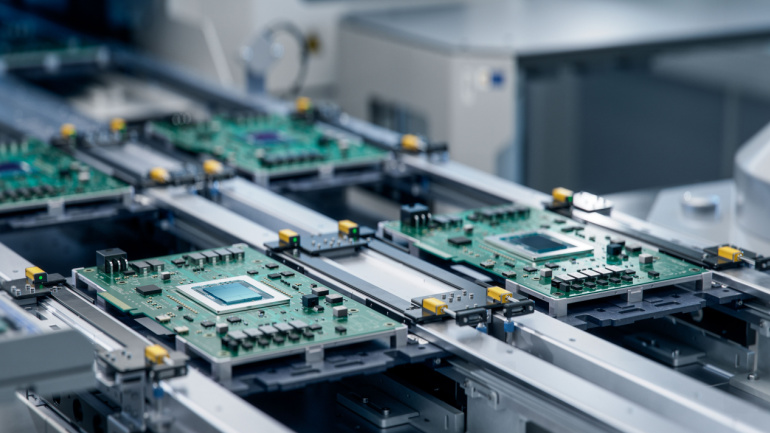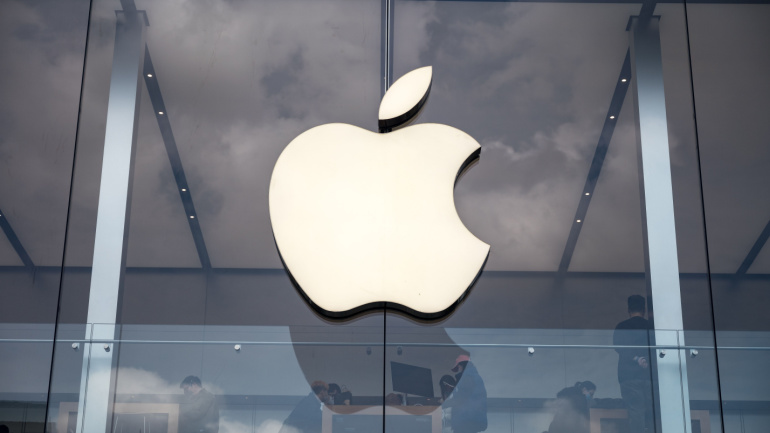Nokia, the renowned network equipment manufacturer, recently joined the Ultra Ethernet Consortium (UEC). Anchored by the Linux Foundation, the UEC fortifies Ethernet technologies to satisfy the escalating requirements of AI and high-performance computing. With members such as AMD, Cisco, and Microsoft, the consortium seeks to equip Ethernet with more advanced networking functions, while maintaining its simplicity and affordability.
IDC predicts a promising future for the semiconductor industry, driven by AI advancements and a stock level recovery. With a refreshed outlook signaling sustainable growth, the firm anticipates global chip revenue of $526.5 billion in 2023. Progress can be seen in the revised revenue forecast for 2024, hinting at a 20.2% year-on-year growth to $633 billion.
Exploring Apple’s groundbreaking leap in silicon innovation with their latest M3, M3 Pro, and M3 Max products, it’s evident that personal computer processing is being redefined. Promising substantially expedited rendering times and performance enhancements across the board, Apple offers these not as mere upgrades, but as game-changers in the hardware world. Furthermore, these innovations signal noteworthy shifts in the broader landscape of PC CPU chips, traditionally dominated by Intel and AMD, now facing exciting competition. Dive deeper to discover the impact of these changes in the world of technology.
Nvidia aims to convince telecoms to use its GPUs in 5G networks, citing NTT Docomo’s recent GPU-accelerated 5G launch in Japan. Yet, the role of Nvidia’s GPUs in telecom remains unclear. Meanwhile, the FCC breaks a two-year deadlock, reigniting net neutrality debates. Telefonica Germany partners with Skylo for global IoT connectivity, expanding options for businesses and consumers. Nokia explores rugged 5G devices for harsh environments, catering to specialized industries with challenging conditions.
The Linux Foundation-led Ultra Ethernet Consortium brings AMD, Arista, Broadcom, and others together to refine ethernet architecture, addressing the escalating network requirements of AI and high-performance computing. Pledging to enhance ethernet performance, the alliance will leverage ethernet’s adaptability, ensuring scalability and cost-effectiveness for diverse workloads. Aiming for a holistic tune-up rather than a complete overhaul, consortium endeavours will encompass detailed protocols, signaling mechanisms, and software solutions.
Ofcom discusses AI’s potential benefits and risks, examining its use in content and telecom industries and addressing concerns about malicious usage. The regulator works with companies to assess safety risks, implement mitigation strategies, and enhance transparency to protect users and promote responsible AI integration.
Amid global economic transformation, network technologies hold vital importance as businesses prioritize cost-saving cloud computing and greener power consumption. Focusing on enhancing customer experiences impacts the development of the metaverse, enabling smart cities and new monetization opportunities. Connectivity, as a critical component, drives sustainable growth across industries.
Nokia has released an update to its AVA Energy efficiency software, which now features improved algorithms and power-saving strategies, allowing communication service providers (CSPs) to achieve significant reductions in electricity use in their networks. The enhanced Nokia AVA Energy efficiency tool’s improved machine learning algorithms will allow CSPs to reduce power usage in their data centers, as well as network base stations, batteries and air conditioning units in telecom networks. Based on customer testing, Nokia AVA Energy efficiency software can reduce power use by up to 30%, which is an increase of around 10% from the original program. The upgraded solution enables operators to automatically shut down idle and underutilized equipment using algorithms. It also offers the possibility to entirely disconnect gear through remote power control modules. Businesses use Nokia’s AVA Energy efficiency software to reduce overall energy costs while addressing environmental sustainability issues in their operations.…
Premium smartphones account for over half of global handset revenues in 2022 According to Counterpoint Research, higher-priced smartphones – those costing more than $600 – accounted for 55% of entire handset revenue in 2022. This is the first time that premium market revenue has accounted for more than half of the worldwide smartphone market. In 2022, revenue attributed to handsets costing $1,000 or more increased by 38%. Apple did well in the premium market, rising 6% year on year and accounting for three-quarters of overall sales in the sector. With more OEMs producing foldable devices in the luxury market, Android smartphones might experience a fresh wave of growth in 2023. Read the full article. Vonage launches no-code video conferencing solution for businesses With the introduction of Vonage’s Meetings API, companies now have a developer-free method of integrating video conferencing into their websites or platforms. The no-code, customizable API is designed…
Google has announced the development of Bard, an AI-powered conversational service that will compete with OpenAI’s ChatGPT. The technology, dubbed an “experimental conversational AI service,” will respond to users’ inquiries and engage in discussions. The program will first be made accessible to a select number of “trusted testers,” before being freely available in the near future. Google has deep expertise in the sort of AI that powers ChatGPT. However, the business has been more cautious about making its AI technologies accessible to the general public. LaMDA, the language model that supports Bard, has already been made accessible through Google’s AI Test Kitchen program, although it has certain limitations. Tech businesses are generally concerned about the possible backlash against untested AI. Large language models like LaMDA and GPT-3.5 have a history of producing harmful information. With the introduction of Bard, Google has significantly changed its approach to AI…













